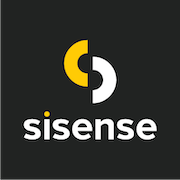Looking for the best data mining software for your business needs? Our comprehensive buyer's guide will help you find the perfect solution. Compare features and prices to make an informed decision.
As businesses become increasingly dependent on data to drive decision-making, the need for robust data mining software solutions has never been greater. This technology enables companies to extract valuable insights from their vast data stores, unlocking new opportunities, identifying trends, and enabling faster, more informed decisions. However, with a wide range of options on the market, finding the right solution can be an overwhelming task. In this guide, we will provide a comprehensive overview of the key features, benefits, and considerations to keep in mind when evaluating such a tool. Whether you are looking for a new solution or upgrading your existing one, this guide will help you find the perfect fit for your organization. The current data mining software landscape provides some crucial insights into data mining prevalence and adoption across industries: according to analyst predictions, the global data mining tools market will increase from $552.1 million in 2018 to $1.31 billion by 2026.
What is data mining software?
Data mining refers to the process of analyzing large sets of data to discover patterns, relationships, and insights that might be useful to businesses. It automates this process and provides users with tools to analyze and manage data with ease. These tools use complex algorithms and techniques to extract useful information from data sets, making it easier to identify patterns and trends that can help businesses optimize processes and make better decisions. This technology has become an essential aspect of business intelligence, and software tools have made it easier to extract meaningful patterns from vast amounts of data as it allows organizations to go beyond simple reporting and extract useful information that can help solve problems and make informed business decisions.
Common use cases of this tool include:
- Marketing: Data mining software is often used to analyze customer data and identify patterns in buying behavior. This information can help companies design targeted marketing campaigns, create personalized product recommendations, and improve customer retention.
- Healthcare: It is used to analyze medical records, identify trends in patient outcomes, and develop diagnostic tools. These tools can help healthcare providers detect diseases early, monitor patient health, and optimize treatment plans.
- Finance: It is used to perform risk analysis, detect financial fraud, and forecast market trends. This information can help financial institutions make better investment decisions and reduce risk.
- E-commerce: This solution is used to analyze user behavior on e-commerce sites, identify buying patterns, and improve customer experience. This information can help e-commerce companies increase revenue, optimize pricing strategies, and improve user engagement.
- Science and engineering: This mining app is used to analyze larger datasets in scientific research, engineering, and environmental science. This information can help researchers identify patterns in complex data, optimize manufacturing processes, and design new products.
Data mining software is used by a wide range of industries and companies, and the types of companies that utilize it include:
- Retail: Retail companies use data mining to analyze customer data and optimize their product offering.
- Healthcare: Healthcare providers use it to identify trends in patient outcomes and optimize treatment plans.
- Financial services: Banks and financial institutions use data mining to detect financial fraud and forecast financial market trends.
- E-commerce: E-commerce companies use data mining to analyze user behavior and improve customer experience.
- Science and engineering: Researchers and scientists in various fields use it to analyze large data sets and identify patterns that can help optimize processes and develop new products.
What are the benefits of adopting a data mining solution?
This critical tool is the backbone of business intelligence that helps companies transform data into valuable insights. These insights can then be used to optimize operations, improve decision-making, and drive significant business growth. Here are some of its key benefits:
- Improved decision making - The software helps organizations to access data and insights that are critical for decision-making and strategic planning.
- Enhanced customer insights - Data mining software provides businesses with insights into customer preferences, behavior, and needs, helping organizations to make more informed decisions.
- Increased efficiency - The solution allows businesses to automate complex analysis tasks and processes, helping them to operate more efficiently and reduce errors and costs.
- Better forecasting and planning - It enables businesses to analyze trends and patterns in data, enabling them to make more accurate forecasts, and better-plan for future growth.
- Strengthened market position - A data mining system enables businesses to analyze market trends, competition, and customer needs, to help them stay ahead of the competition.
Data mining software is a powerful tool that businesses need to leverage to gain insights that can lead to smarter decision-making, increase efficiency, and drive significant business growth. By investing in one, businesses can gain an invaluable competitive advantage in an increasingly data-driven business landscape.
10 key features of data mining software
Data mining software can be a vital tool for businesses who want to obtain valuable insights from their data. These solutions come packed with a range of advanced features to help users extract meaningful patterns and trends, which can then be used to drive better decision-making across the organization.
Here are some of its most common features:
1.Data visualization tools:
These tools facilitate the representation of complex data in a visual format, making it easier to understand and manipulate.
2.Predictive analytics:
Data mining software comes equipped with sophisticated algorithms designed to analyze data and make predictions about future trends, patterns, and customer behaviors.
3.Artificial intelligence and machine learning capabilities:
These features introduce the ability to automate data mining, allowing businesses to reduce the workload on human operators and speed up the data mining process.
4.Clustering:
This function enables users to group data into meaningful clusters, allowing them to more easily understand trends and patterns in their data.
5.Regression analysis:
This feature helps users identify the relationships between different variables in their data, allowing them to make more informed decisions.
6.Association analysis:
This element enables users to identify relationships between different variables in their data and make data-based predictions for future behavior.
7.Text mining:
This feature allows businesses to analyze data from unstructured sources like text and documents, giving them deeper insights into trends and patterns that they may not have otherwise discovered.
8.Outlier detection:
This feature helps users identify unusual data points that may require further investigation.
9.Data cleansing and preparation tools:
These tools enable users to clean and prepare their data before analyzing it, helping to ensure that the data is reliable and accurate.
10.Real-time data mining:
This additional feature allows businesses to analyze data as it is generated, providing them with up-to-date accurate insights and predictions that can help inform real-time decision-making.
This mining technology has become an essential tool for businesses looking to extract actionable insights and make data-backed decisions. With a range of key features designed to analyze and interpret data in meaningful ways, these software solutions can help businesses gain a competitive edge in today's data-driven landscape.
Things to consider when investing in data mining application
Data mining software is a powerful tool for any business looking to unlock the value of their data. However, with so many options on the market, it can be challenging to know which software suite to choose. This segment will explore the key factors that businesses should consider when purchasing this imperative system.
- Ease of use: One of the most important factors to consider when selecting data mining software is the ease of use. Look for a package that has an intuitive user interface and a user-friendly workflow. This will help to reduce training time and enable your team to get up and running quickly.
- Functional capabilities: Another critical factor to consider is the functional capabilities of the platform. Look for one that can handle a wide range of data types and data sources. Additionally, look for one that can perform a variety of data mining techniques, including classification, clustering, regression, and association analysis.
- Scalability: As your business grows, so will your data mining needs. You need to select an application that can scale with your business. Consider how the platform handles large datasets and whether it can handle multiple simultaneous users.
- Integration with other systems: Your data mining system must work seamlessly with your existing systems. Ensure that it has robust integration capabilities and can connect with databases, cloud platforms, and other software systems.
- Security: Your data is your most valuable asset, and you need to ensure that it is protected. Choose data mining software that offers robust security features, such as data encryption, user authentication, and role-based access control.
- Support and training: No matter how intuitive the application is, there will always be a deep learning curve. Look for vendors that offer comprehensive training and support programs to get your team up to speed quickly. Additionally, consider the availability of updates and ongoing technical support.
Selecting data mining software is a critical decision that can have a significant impact on your business's success. By considering all factors mentioned above, you can make an informed decision that will help your business unlock the full potential of its data.
Market trends for data mining software
Data mining software is rapidly evolving to keep up with the advances in technology. In 2024, we can expect to see its several exciting trends:
Trend #1
The first trend is the use of artificial intelligence (AI) and machine learning (ML) algorithms to analyze large datasets more quickly and accurately. This trend will increase efficiency, reduce costs, and improve the accuracy of analysis.
Trend #2
The second trend is the use of cloud-based mining management solutions, which will allows miners to access data from anywhere in the world.
Trend #3
The third trend is the development of systems that can handle unstructured data, such as text and images, in addition to structured data.
Trend #4
The fourth trend is the integration of data mining solutions with other technologies such as the Internet of Things (IoT) and blockchain. Data mining software can monitor and analyze data from IoT devices in real-time, and blockchain can help ensure secure and transparent data sharing. These trends will significantly impact the mining industry in the coming years, and mining companies that adopt them will have a competitive advantage over their peers.
Conclusion
Ultimately, the goal is to select a data mining software solution that not only meets your current requirements but also offers flexibility and scalability to adapt to future challenges and opportunities. By following a systematic approach and engaging in diligent research and assessment, you can make an informed decision that maximizes the value of your data mining efforts and drives business success. Involving key stakeholders from various departments, including data scientists, analysts, IT professionals, and decision-makers, ensures that diverse perspectives are considered during the evaluation process. Additionally, conducting thorough testing and evaluation, including real-world use cases and scenarios, helps validate the software's suitability for your business's specific needs.








